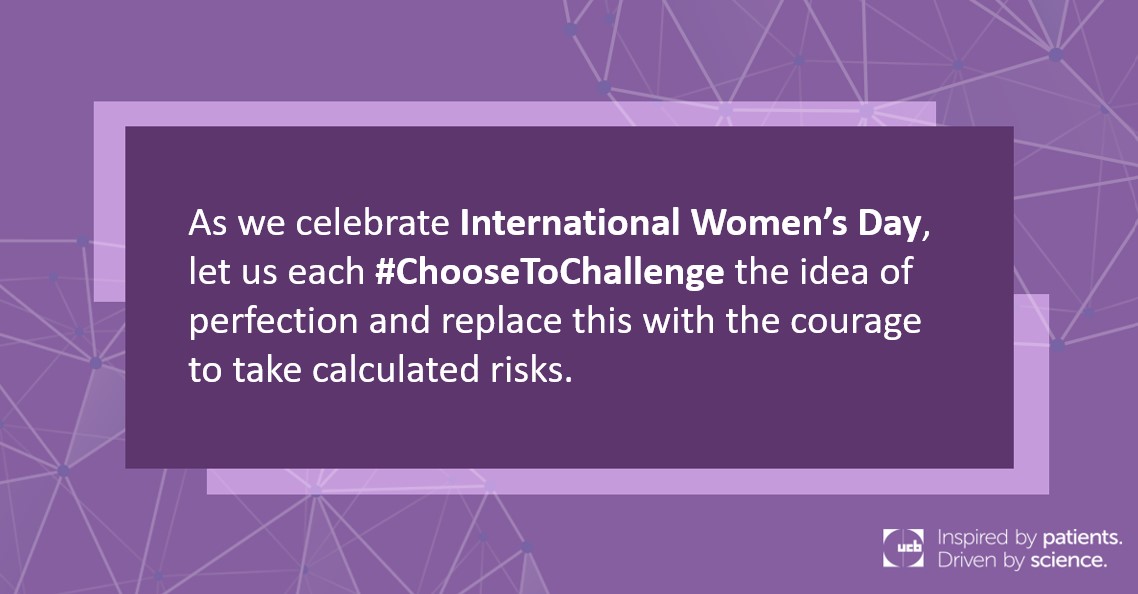
Perfection is a difficult concept for me. I have often questioned why flawlessness, completeness and correctness, in essence, a state of ‘supreme excellence’ would be desirable. Perfection to me seems unauthentic and not real. As human beings we have inherent biases, with flaws and imperfections. However, we are colorful and full of surprises - this makes us who we are. We are on a constant, life-long journey to develop ourselves, with wonderful individuality, diverse talents and thought perspectives.
The oldest definition of perfection can be contributed to Aristotle who didn’t do us any favors when he defined it as being ‘complete’ with ‘nothing to add’, ‘being so good that nothing could be better’ and, finally, having’ attained full purpose’. For more than 2000 years, this concept has impacted education, natural sciences, art, religion, ethics, and the business world. While our modern views are more liberal, the notion of perfection is still deeply imbedded in our psyche and impacts our lives in many dimensions. On a positive note, contemporary concepts of continuous learning and personal development recognize that we exist with both strengths and weaknesses. We are encouraged to build on our strengths instead of weeding out and improving weaknesses and to acknowledge that failure is part of learning and personal development. This allows us to authentically embrace who we are and grow as we feel is suitable for us and the world we live in. However, I still see the quest for perfection in pockets, particularly at work and home.
Let’s start with the workplace. In the business world, most tasks follow well-defined, processes designed to achieve the outcome with a high degree of perfection when meticulously followed. This ensures our safety and protects us from failure. However, I recognize a key element required for success in a world of accelerated change and fast-moving opportunities is missing: calculated and well-mitigated risk taking!
Once we are on ‘process auto-pilot’ we are deprived from reflection around the ultimate goals. We are no longer focused on impact, challenging the status quo, taking an adventure to find new ways, and allowing our deep expertise to drive creative new solutions. While this ‘auto-pilot’ keeps us busy it processes all tasks without filters. Every topic covered by the process is handled in the same way, irrespective of urgency or importance. Very often, the aspiration is perfection of the process. However, the outputs and ultimately the impact of those are what matters. Even the most data-based decisions will not be delivered through process but rather deep thinking, discussion, and prudent judgement. Focusing on impactful outcomes means being accountable, applying scrutiny and taking decisions – it requires courage and taking a stand. I am not questioning the value of process. I am challenging the desire to achieve perfection in the process. I advocate for courage, smart risk-taking and accountability, for boldness to go beyond our self-imposed constraints, and for accepting failure – the extreme opposite of perfection - as a prerequisite to grow and evolve. Risk taking and failure have advanced mankind while the desire for perfection has often led to significant detours.
At home, the pandemic has surfaced perfection in our personal lives in well-known dimensions, with concerning impact. Research has illuminated that women have shouldered the burden of the pandemic at all levels. Women put their families as a first priority, taking care of home schooling, entertaining children, supporting partners, and managing households under pandemic constraints while continuing to perform in their jobs. Taking considerable risks for their mental and physical health, this has been done with selflessness, long hour shifts, with almost no personal time. This also comes with that thread of perfection - to be the best mother, best wife, perfect housekeeper, high performing colleague and indispensable team member. Women are masters in self-awareness and self-doubt, with high thresholds to express their opinions and ideas (because they might not be sufficiently brilliant!). Women also have tremendous accountability for all that goes wrong and the generosity to be super-inclusive when successes need to be praised. These female traits add up to perfectionism for the benefit of others instead of balancing their own interests against the well-being of others. Confidence will tame perfectionism. Women must be confident that their own agenda, interests and well-being do matter, not only for themselves but equally for families, partners, colleagues, and managers. Health and well-being are of ultimate importance. The required actions and consequences are obvious: Women must prioritize their own health, happiness and comfort and demand cooperation and equal effort by their partners and stakeholders. Often the path to genuine cooperation will require the courage to allow things to slip, to tolerate imperfect outcomes, no matter how painful and difficult this may be. Stepping away from perfectionism will drive important progress towards equity.
At UCB I am surrounded by incredible people deeply committed to do well and offer their best each day to perform at their maximum potential. I consider myself fortunate to work in such a thriving, hard-working culture of dedication. As we celebrate International Women’s Day this March 8, can we replace the desire to feel safe by aiming for perfection with the courage to take calculated risks which will bring us to a more resourceful and mindful working culture?
#ChooseToChallenge
About the Author
Iris Loew-Friedrich, is Chief Medical Officer for UCB, a member of the company’s Executive Committee and Head of the Development Solutions. She provides strate-gic global leadership for worldwide clinical development, medical affairs, regulatory affairs, quality assurance, statistical innovation, real world evidence and patient safety/pharmacovigilance. Read more


